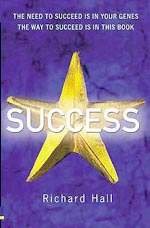Every entrepreneur thinks he has a business idea that will put him on Easy Street. After opening day, reality hits. Merchandise isn't moving. Expenses are too high. Profits are too low. You're not sure what went wrong or how to fix it. Suddenly you're in panic mode.
Many startup crises can be averted by seeking expert guidance in the planning stages, long before leases are signed or business cards are printed. Like a savvy career counselor or financial planner, the right advisor can help you build a solid foundation as well as steer you through choppy waters once you open your doors.
This is particularly true if you're a first-time entrepreneur who has never coped with problems like weak repeat business, poor cash flow, flawed order tracking or fulfillment systems. Getting help from outside experts can mean the difference between smooth sailing and a sinking ship, both at startup and as your business matures.
Where to Look
When you're looking for a shoulder to lean on, there are three types of expert resources available.
1. Seminars, books and other self-help materials are useful and affordable for any business rookie.
2. Business coaches are long-term advisors who can help polish your initial business plan and offer strategic problem-solving skills moving forward.
3. Consultants are short-term advisors hired for their tactical expertise in specific areas such as computer networking or employee recruitment.
These options are not mutually exclusive. Each kind of resource serves a different purpose. Just as it takes a village to raise a child, it takes an assortment of outside specialists to shepherd a small business through the startup phase. A mix of these three types of assistance can not only prevent mistakes at startup, but also provide valuable ideas and tools for shaping and growing the business.
Books and Seminars
Never underestimate the power of a good business book, DVD, CD or seminar to inspire, teach and save you from the kinds of missteps that come from inexperience. The choice is nearly unlimited, from Business 101-type books like Small Business for Dummies to workshops run by Small Business Development Centers, frequently located at community colleges.
These resources are helpful in conveying basic business principles and examples as well as providing general advice in areas such as writing a business plan or marketing by direct mail. Consult your local library, university, chamber of commerce, or retail or online bookstore for options.
Business Coaches
While self-help resources can provide generic advice, a business coach delivers one-on-one mentoring specific to your enterprise and challenges. Coaches usually charge a monthly retainer that includes a defined number of hours and a specific program plan.
A good coach has years of business experience that he or she can use to analyze your business model, pinpoint flaws, suggest improvements, identify and troubleshoot day-to-day problems, and fine-tune areas ranging from sales and marketing to hiring and team management. If sales are slow or customers are complaining, he or she will figure out why and formulate a cure. New business owners are simply too busy minding the store and usually too inexperienced to solve these problems themselves.
In choosing a coach, look for a local person who can see your operation firsthand, provide training assistance and be readily available. Be sure that your personalities mesh and that he or she has specific systems and methodologies to help you run your business properly. Coaching is a long-term relationship that requires good communication and mutual respect.
Also, select a coach with a broad business background rather than someone from your industry. To ensure creative problem-solving, you need an advisor who isn't shackled by preconceived notions of your market. And remember that you're looking for a business coach, not a life coach. There's a big difference.
Consultants
For tactical challenges--like setting up accounting systems or unplugging a manufacturing bottleneck--turn to an outside consultant with specific expertise in the area in question. Consultants typically charge an hourly fee and should be able to tell you upfront what they will charge for the job.
One heating/air conditioning company I know needed a consultant to reorganize the equipment in its service vans. They hired an upfitter to design a shelving and drawer arrangement to squeeze in the maximum amount of gear, as well as ensure that each item was within easy reach. In that case, a business coach identified the need for the upfit and assisted in identifying the best candidate for the task. In other cases, the business owner conducts the hunt himself.
When vetting consultants, get referrals or recommendations from clients with projects similar to yours whenever possible, and get a firm estimate of the time it will take to do the job. Also be sure that the company you hire will supply documentation allowing you to retrace their steps if necessary to solve a problem or duplicate their work at a later date.
High Return on Investment
Getting expert advice at the right time can avoid costly mistakes at startup, from sales forecasts that are too optimistic to ill-advised marketing strategies. It can also facilitate mid-course corrections necessitated by customer feedback, changing market conditions or problems within your organization itself.
Yes, you have to pay to play. But in the long run, the right guidance can save you from months of poor performance and other budget-busting scenarios. With professional advice, you can often dramatically lessen the amount of nail-biting and red ink you have to endure before the business takes hold. Easy Street might be around the corner after all.
Subscribe to:
Post Comments (Atom)













































































































1 comment:
It really pays to seek expert advise at the early stages of planning your business. I have seen businessmen failing many business startups one after the other. The Young Entrepreneur Society from the www.YoungEntrepreneurSociety.com provides many business related info.
Post a Comment